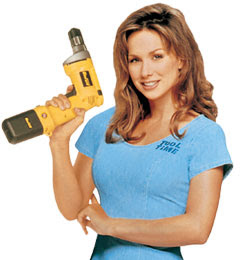 Once considered purely utilitarian, bathrooms are increasingly places for rest, renewal, and self-pampering. Plan your bathroom remodel to achieve both looks and luxury; incorporate “Green” design components to contribute to a healthier setting that is more environmentally friendly and that also carries lower ongoing costs for you.
Once considered purely utilitarian, bathrooms are increasingly places for rest, renewal, and self-pampering. Plan your bathroom remodel to achieve both looks and luxury; incorporate “Green” design components to contribute to a healthier setting that is more environmentally friendly and that also carries lower ongoing costs for you.
Health-focused designs maximize fresh air and natural light. This focus serves to reduce the risk of injury, as well as to identify and rectify such potential problems as molds, allergens and toxic chemicals. Green remodeling techniques are specifically designed to be durable and to create a safe environment with materials that are made from manufactured products with as few toxins as possible.
The Dangers of Mold
Mold is the number one problem for household contamination, infection and disease and the bathroom is the primary source of mold contamination.
Mold, a simple fungus, adheres to and grows on surfaces where there is a high degree of continuing moisture — often on damp floors and unsealed grout lines. Mold spores can float on mild air currents caused by simply walking into the room. Inhaled mold and fungal spores produce allergic reactions, as well as hypersensitivity to other lung irritants and infectious diseases. “Some forms of mold found indoors produce toxins which can be carcinogenic, induce birth defects, and can affect the immune system,” says David Johnston, a certified LEED contractor.
If your remodeling project is precipitated by a mold problem, pay attention to more than just the latest trend in vanity counters, shower systems, and faucets. Be sure to eliminate all mold-infested materials in the bathroom and adjacent areas after tear-out and before you begin installation.
Environmental and Expense Factors
Although bathrooms are usually smaller than kitchens, bathrooms are the largest user of critical resources – the place where most of the indoor water is used in a home, and where the highest percentage of energy is consumed.
According to the Environmental Protection Agency (EPA), the average person in the United States uses 90 gallons of water per day. Most of the water used is for bathing and showering. Additionally, a leaking faucet can waste up to 2,000 gallons in a year, and a leaking or running toilet can waste 200 gallons a day. Green remodeling offers the opportunity to consider attractively designed products and materials that reduce water consumption.
Creating a Green Bathroom
Begin your bathroom remodeling project with a design that incorporates your family’s needs. Prepare a checklist of the improvements you’d like to include.
Assess how you will most effectively reduce humidity in the bathroom. While your window may meet code requirements, is it really open all winter long, or do you need a supplemental exhaust fan?
Carefully evaluate the materials you choose. For the vanity counter, choose materials where surfaces are manufactured to resist absorption of bacteria and which can easily be cleaned without harsh chemicals.
For the shower, consider a one-piece shower pan rather than a tile pan, to reduce the possibility of mold building up in tile pan grout. Similarly, give thought to single-panel wall shower and bath surrounds.
For the vanity cabinet, select woods that are renewable and certified by the Forest Service Council.
Examine your water usage and identify ways in which you might conserve. Flow reduction devices for showers and faucets don’t interfere with good water pressure.
The newer low-flow toilets have improved greatly since 1.6 gallon-per-flush toilets first became law in 1994. No longer is it necessary to flush multiple times. The Toto Aquia dual-flush offers one button to flush liquids that uses only 0.9 gallons, and a second button for the now-standard low flow of 1.6 gallons for solid wastes. Even newer in the market are several High Efficiency toilets which only uses 1.28 gallons per flush.
A significant way to reduce energy usage is with a tank-less water heater. Tank-less or “on-demand” water heaters don’t waste the gas or electricity used to constantly keep traditional 40-to-70 gallon tanks of water at 120 degree temperatures. Another bonus is that there is no large storage tank taking up space.
Ventilating fans should be installed with timers, to enable a departing homeowner to leave the house before properly venting excess, damaging humidity — knowing that the fan will turn off in a set period of time. Consider a humidistat-controlled vent fan in rooms that don’t have adequate ventilation otherwise — the control will automatically sense the level of moisture in the bathroom and run the vent until reaching selected degrees of dryness.
Green Bathroom Remodel Check List
Consider which of these steps can work in your setting:
• Donate or recycle fixtures being torn out
• Insulate pipes that can be exposed to cold
• Install tank-less water heaters
• Install low-flush toilets
• Install low-flow, high-performance showerheads
• Install low-flow faucets
• Install compact fluorescent light bulbs (CFL)
• Install occupancy sensitive lighting controls
• Caulk, seal and weather strip outside walls
• Install double-paned windows
• Incorporate natural light when possible to reduce the use of electricity
